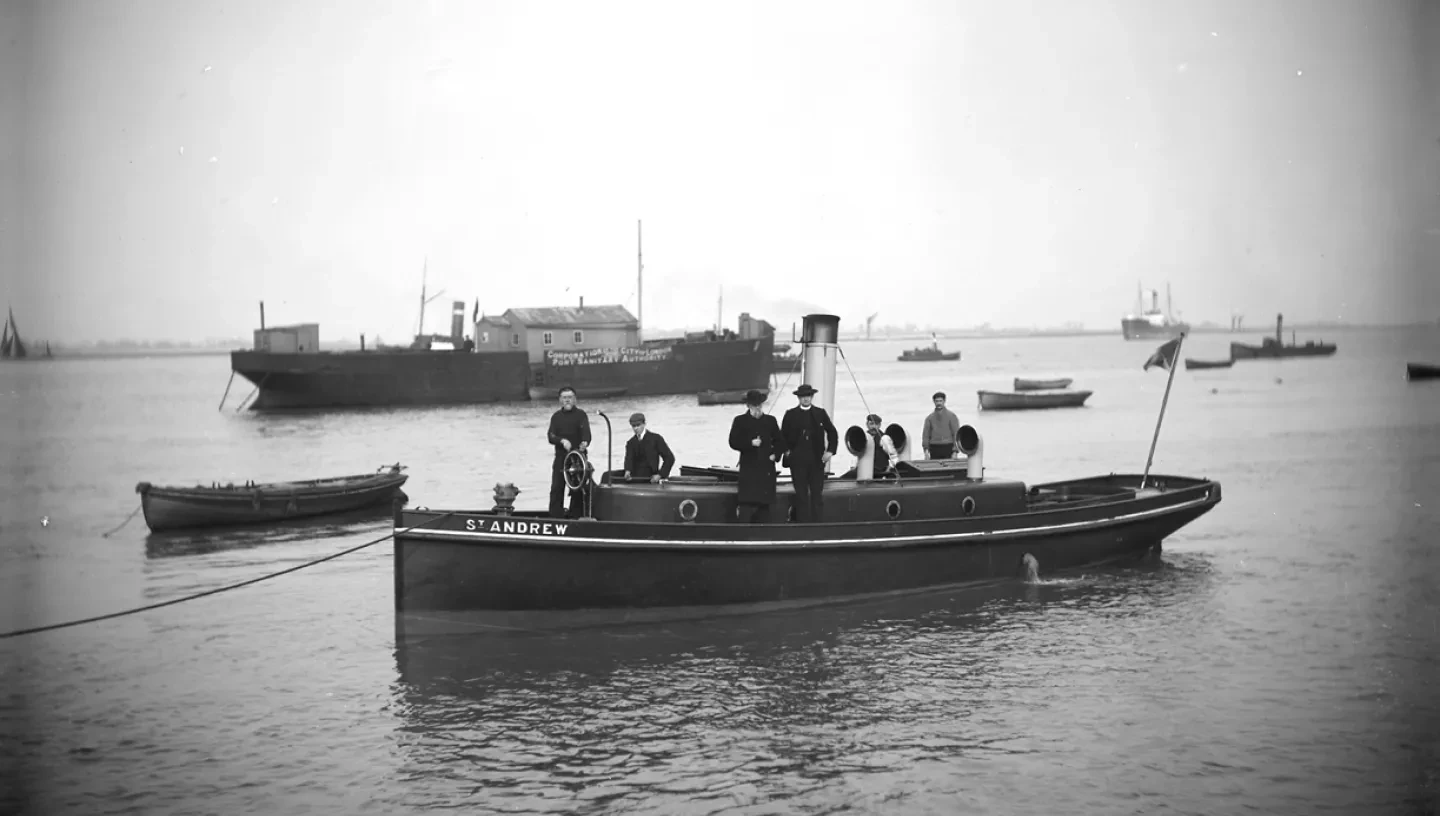
In this blog we take a look at a handwritten diary by the clergy of the St Andrew's Waterside Church Mission between 1887-1905. While seamen have faced many dangers and uncertainties at sea, mission societies such as St Andrew's have supported and cared for their welfare through religious services and the provision of books - both at sea and on land.
By Graham Thompson, Archives Assistant
The isolation and anxiety felt by many during the coronavirus lockdown has been likened to the uncertainties routinely faced by seafarers. Many different mission societies have existed to support the welfare of individuals facing dangers and isolation at sea.
St Andrew’s Waterside Church Mission and their diaries
Among them was the St Andrew’s Waterside Church Mission, established in 1864 to serve the spiritual needs of merchant seamen, fishermen and emigrants passing through the Church of England parish of Holy Trinity at Milton-next-Gravesend. Its work among the waterfront communities of the River Thames was replicated at branches in ports at home and abroad before it merged with the Missions to Seamen in 1939.
This blog features a handwritten diary in three volumes kept by the clergy of the mission during the years 1887-1905 (RMG reference: WEL/36/1-3).
The notes record their visits to ships bound for ports all over the world, but also static crafts such as coal and powder hulks. They encouraged regular religious services afloat and in port, and delivered library boxes containing free Bibles, hymn and prayer books, etc. for the use of crews and passengers while at sea. From the 1880s onwards these operations were connected with Tilbury Dock and Railway Parochial Mission, formed to meet the demands of the new population around Tilbury Docks.
A fascinating aspect are records of incidental conversations, sampling the personal opinions and experiences of seafarers. Stories of good or ill fortune during rough weather, and references to accidents and injuries make us appreciate the dangerous working conditions at sea. The following entry in the diary was made following a visit to the Danish sailing vessel Johannes, whose master had great trust in the power of prayer:
‘ … He told me of an interesting little custom, that whenever a sailor saw a big sea coming towards the ship & threatening to overwhelm it, he would in imitation of Christ, stilling the tempest, stretch out his hands, and wave it down, and it always sank, before it reached the ship. He himself had the utmost confidence in it, if done with faith, as a sure remedy; you would see even the roughest sailors doing it.’
(WEL/36/2, 11 October 1904)
Pastoral care on land
Pastoral care was extended to port workers who lived in outlying parts of the estuary, in consequence of byelaws that prevented explosives factories and petroleum jetties being sited near populous areas. This entry records a conversation with the keeper of Mucking lighthouse, near to Thames Haven petroleum wharf:
‘He told me that a clergyman came down once a fortnight, and held a service in the office of the oil-works, for the few families who lived there, but if they wished to attend the Holy Communion, they had to walk about five miles to get to the nearest church … It is difficult to imagine, that only a few miles away from Gravesend there should be a population of from 30 to 40 people so cut off from the outer world.’
(WEL/36/2, 18 August 1903)
‘Unruly behavior’ and the boon of books
The diary contains a good number of comments about the unruly behavior of English seamen and their fondness for drink, usually made by their opinionated superiors. For example, this entry following a visit to the iron sailing ship Hilston (1885):
‘Saw the chief officer Mr Morris … he further said that he had seen English sailors in India behaving in a manner which would disgrace even a heathen country & he had heard it said that instead of England sending out missionaries to convert the Hindoos [sic] it would be better if she converted her own people first.’
(WEL/36/1, 13 November 1890)
Elsewhere in the diary the monotony of life at sea and the need to kick over the traces is offered as an explanation for the unacceptable behavior of ‘Jack ashore’. In most cases, the library boxes supplied to crews were regarded as a boon. Good books enabled seafarers to occupy their minds with the thoughts of others and thus forget they were out on the lonely sea.
Some historical examples of the isolation experienced by seafarers and explorers were featured in the recent Royal Museums Greenwich weekly online webcasts.
In response to the coronavirus pandemic the Mission to Seafarers has launched the Flying Angel Campaign.

